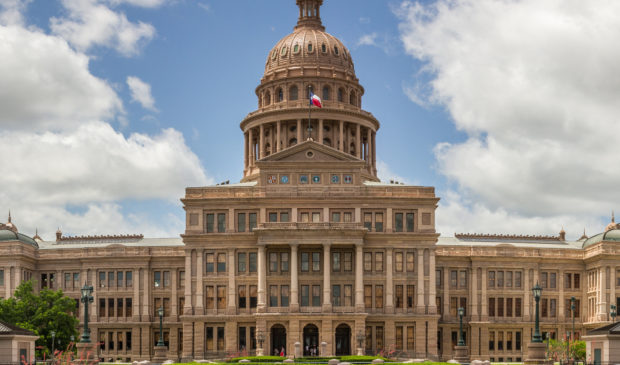Governor’s order in August took millions from local public service projects
Wednesday, October 13, 2021 by
Seth Smalley In August, following a meeting between the Capital Area Council of Governments and the governor’s office, 15 projects and nonprofits, including the SAFE Alliance and Asian Family Support Services of Austin, lost funding they were offered in April.
Because of the strict timeline of this particular competitive process – projects apply in February and receive money in October – applicant groups that learned of the reductions in August have been put in a tough spot, with just a month to recover hundreds of thousands of dollars.
The funding cuts came following a directive from Gov. Greg Abbott’s office, despite over $16 billion in American Rescue Plan Act funding sitting unallocated by the state.
The original money came from federally distributed Victims of Crime Act funding, typically sent to a number of victim services groups throughout the region. VOCA reserves are generally filled through the prosecution and fining of white-collar crime. Under the Trump administration, though, reserves dried up. However, as a number of county commissioners have pointed out, the same projects would theoretically also qualify for ARPA funding, according to Treasury Department guidance. There’s even an ongoing discussion in the state Legislature about filling the VOCA void with ARPA dollars.
But for the impacted projects, it’s no guarantee. They will have to undergo an entirely new competitive process for the funding.
The reductions were intended to shore up money for 10 additional projects that were added after April, many of which received less money than they had requested. Since money to the COGs comes from grant money as well as the state, local COGs in the state are at least partly beholden to state directives such as Abbott’s.
Councils of governments are generally made up of bodies of municipal governments, counties and cities, with commissioners, county judges and local elected officials serving on the boards. There are 24 COGs in Texas.
“He apparently asked a few other urban COG groups to do that as well,” Travis County Commissioner Brigid Shea told the Austin Monitor. “I was not at all happy with the reconfiguration and I either abstained or voted against it.”
All of the affected projects, which were vetted by the CAPCOG Criminal Justice Advisory Committee, are aimed at helping victims of abuse in some fashion. Now, at least some of the impacted organizations are heading to local governments to recover money lost.
“In the pandemic, the need for crisis intervention services has increased over 90 percent based on AFSSA’s internal statistics,” Darlene Lanham, Asian Family Support Services of Austin executive director, informed the Monitor in a written statement. AFSSA received just 35 percent of the funding it had asked for as a result of Abbott’s directive.
The other impacted groups include Hays-Caldwell Women’s Center, Williamson County Crisis Center, the SAFE Alliance, Highland Lakes Family Crisis Center, Bastrop County Women’s Shelter, Volunteer Legal Services of Central Texas, Settlement Home for Children, the Ecumenical Center, Helping Hand Home for Children, and American Gateways.
While a few of the involved projects emerged from the funding cuts mostly unscathed – Bastrop County Women’s Shelter retained 91 percent of its funding – other projects were cut by more than 60 percent. AFSSA and Settlement Home for Children received 35 percent and 28 percent of their expected funding, respectively, from April as a result of the governor’s directive. Settlement Home for Children requested $515,674 from CAPCOG but will be allocated just $144,989.
The Helping Hand Home for Children requested $352,986 in April but will receive $293,576 from CAPCOG. The SAFE Alliance’s funding was reduced by about $300,000; it requested $1.88 million and will receive $1.59 million.
Photo made available through a Creative Commons license.
The Austin Monitor’s work is made possible by donations from the community. Though our reporting covers donors from time to time, we are careful to keep business and editorial efforts separate while maintaining transparency. A complete list of donors is available here, and our code of ethics is explained here.
You're a community leader
And we’re honored you look to us for serious, in-depth news. You know a strong community needs local and dedicated watchdog reporting. We’re here for you and that won’t change. Now will you take the powerful next step and support our nonprofit news organization?






